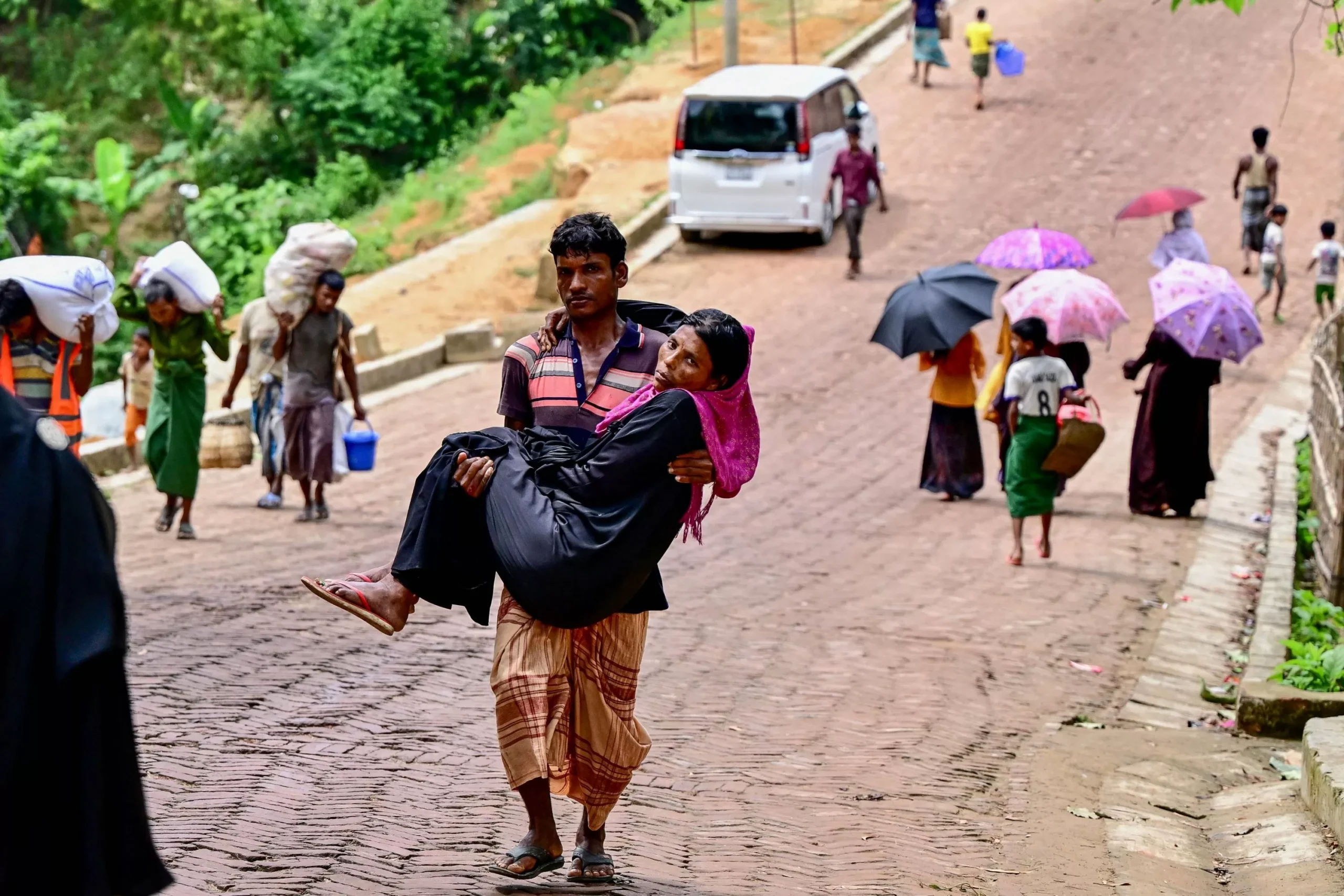Bangladesh has taken a significant step towards ensuring the safety and security of its borders by boosting border security measures. This move comes after nearly 18,000 Rohingya Muslims, fleeing violence in their native Myanmar, crossed over into Bangladesh in recent months. The government of Bangladesh has shown great compassion and responsibility in providing shelter and aid to these refugees, but it has also recognized the need to strengthen its borders to prevent any further influx of refugees.
The Rohingya crisis has been ongoing for decades, with the minority Muslim community facing persecution and violence in Myanmar. In August 2017, the situation escalated as the Myanmar military launched a brutal crackdown on the Rohingya, forcing thousands to flee their homes and seek refuge in neighboring countries. Bangladesh, being the closest and most accessible country, has seen a massive influx of Rohingya refugees, with the number reaching almost a million.
The influx of such a large number of refugees has put a strain on Bangladesh’s resources and infrastructure. The government has been working tirelessly to provide aid and shelter to these refugees, but it has also recognized the need to secure its borders to prevent any further influx. In response to this, the government has taken several measures to boost border security.
One of the key steps taken by the government is the deployment of additional border guards along the Myanmar-Bangladesh border. These border guards have been given strict instructions to prevent any illegal crossings and to ensure the safety and security of the border. The government has also increased surveillance along the border, using drones and other advanced technology to monitor any suspicious activities.
In addition to this, the government has also strengthened its cooperation with neighboring countries, especially Myanmar, to address the issue of illegal border crossings. High-level meetings have been held between the two countries to discuss ways to prevent the influx of refugees and to find a long-term solution to the Rohingya crisis. This shows the government’s commitment to addressing the issue in a diplomatic and peaceful manner.
Furthermore, the government has also taken steps to improve the living conditions of the refugees already in Bangladesh. The construction of new shelters and the provision of basic amenities such as food, water, and healthcare have been prioritized. This not only shows the government’s compassion towards the refugees but also helps to ease the burden on the local communities.
The boost in border security measures has not only been beneficial for Bangladesh but also for the refugees themselves. It has helped to prevent the exploitation of vulnerable refugees by human traffickers and has ensured their safety and protection. The government has also set up a registration process for the refugees, which will help to keep track of their movements and prevent any illegal activities.
The international community has also recognized and appreciated Bangladesh’s efforts in providing aid and shelter to the Rohingya refugees. The United Nations has commended the government’s response to the crisis and has urged other countries to support Bangladesh in its efforts. The government has also received praise from various humanitarian organizations for its swift and effective response to the crisis.
In conclusion, Bangladesh has taken a commendable step in boosting its border security after the influx of Rohingya refugees. The government’s actions not only show its commitment to ensuring the safety and security of its borders but also its compassion towards the refugees. The international community must also support Bangladesh in its efforts to address the Rohingya crisis and find a long-term solution. With the government’s determination and the support of the international community, we can hope for a better and safer future for both Bangladesh and the Rohingya refugees.






![Complete BritRail Pass Guide [Types, How to Use It, Pros + Cons]](https://inside-news.uk/wp-content/uploads/2025/06/00221EB4-BCA2-4DBB-6CD4-83DBC37D71FA-120x86.webp)















